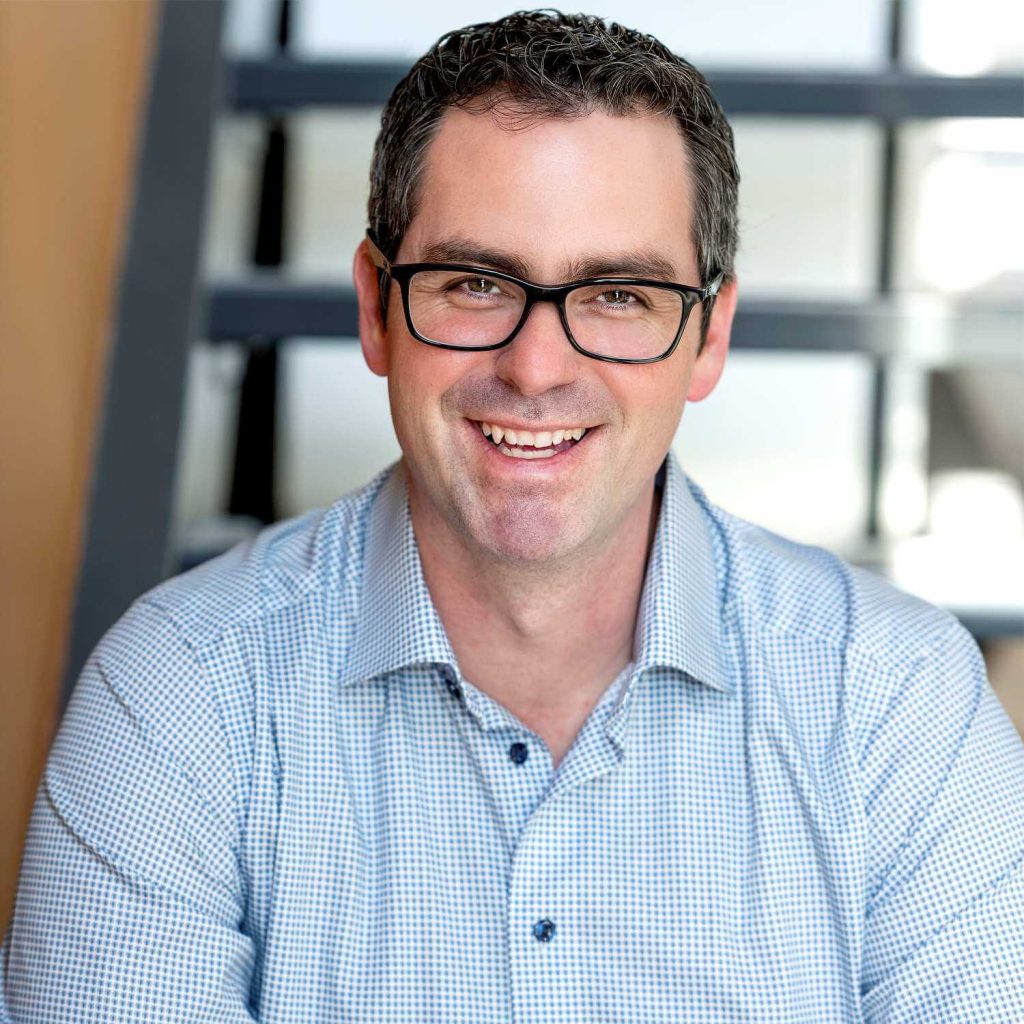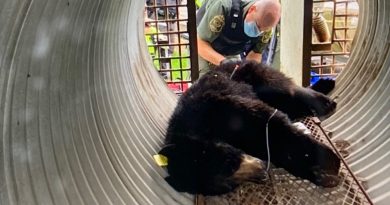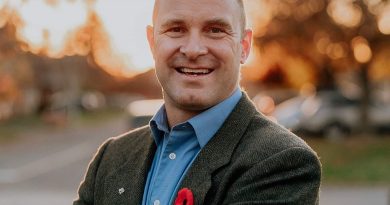Local Man Honoured With Algonquin College Changing Lives Award
From Algonquin College
Opportunity changes everything.
It is the motto BGC Ottawa (formerly the Boys and Girls Club of Ottawa) operates under and its chief executive officer, Adam Joiner, lives by.
“Every child will face challenges and adversities in their life,” said the graduate of Algonquin College’s Social Service Worker program. “We should strive to understand their lived experience while focusing on how you can bridge that and provide opportunities.”
After multiple leadership roles at the Club, Joiner became the CEO in May 2020. Managing a large, complex service organization and navigating positive change in a pandemic, has been a vital part of Joiner’s mandate as CEO. As a respected leader, he is known as a connector with a deep background in government relations and working collaboratively with multiple local partner agencies and stakeholders.
He has used his voice to support not BGCO but also has participated in many community tables and leadership opportunities.
Joiner’s ongoing goal is to bring as many opportunities to children and youth in Ottawa as possible. He is often brought in as a consultant to assist in training/facilitation in other like-minded organizations.
A painfully shy Joiner was nine years old the first time he walked into the Ottawa Police Youth Centre (later converted to the Boys and Girls Club of Ottawa) on Prince of Wales Drive.
“I remember the first day I walked into that Centre, and I was there for about five minutes. People started coming in and I was scared, and I was shy, and I left. I went the next day and I stayed for five minutes and left. And then I went the next day and stayed for five minutes.”
Finally, someone came to him and said, ‘do you want to play ball hockey?’
In a barely audible voice, Joiner remembered mustering the courage to say, “yes”.
He stayed for 30 minutes, running home afterwards to tell his mother that he was so proud of himself.
It was a huge moment in his young life. He now had a place to go where he felt safe and started going every day.
“That building saved my life,” an emotional Joiner recalled.
“That was my place, in so many ways. Sometimes I wouldn’t even go to school because I had so many problems with the schools. But I would go to the Club. That was my place.”
For him those first reluctant steps were life changing.
Before moving to an apartment building near the youth centre, his family had moved dozens of times.
“It was challenging because I never had a social circle. I didn’t have friends. I didn’t feel safe at school due to abuse I experienced in the school system. I didn’t really have a social network. My family was important to me. They were the only people in my life. My mom was super sick. So, my dad was the only person who was working. He worked really hard to give us what we wanted. We just didn’t have the ability to do things. Frankly, I didn’t feel safe in terms of even having a conversation with someone. We were going through so much as a family.”
Joiner explains there are a lot of different ways that make children feel they can do anything they want in life.
BGCO operates in 19 neighbourhoods across the city.
It provides a safe and supportive place for children and youth, of all backgrounds, to experience new opportunities, overcome barriers, and develop confidence and skills for life. Youth six to 18 years old come from all over the city to access their programs.
“You don’t have to be from a certain community. You don’t have to be from a certain income. You don’t have to be a certain anything,” said Joiner, “because every child needs something and our job is to provide that safe place, and when I say place, I mean providing a culture of mentorship and leadership and support.”
Staff work tirelessly to build that support for children and youth.
When they come to the Club, Joiner promises a space that feels like their second home, a place they can be themselves.
Whether that is at an overnight camp or one of many programs offered, Joiner stresses no matter the experience, the first, and most important thing for members, is having a safe environment.
“Once a child feels safe, then they can start to open their minds to other opportunities,” said Joiner. “When they realize the person in front of them is a trusted, caring confident person and really, truly wants to see their success, then they will start to trust them to teach them things.
“We always focus on systems in terms of what is the goal, when we should be really focused on how we make people feel that they are part of something. Because as soon as you can do that, then automatically you are going to have success.”
The philosophy of the Club is to take its programs and use them as intentional skill development pieces that are measured.
With this approach, Joiner explains the Club can determine any one program did in fact make a big difference in someone’s life, “because our members tell us so.”
“I’m really passionate about that stuff. I can talk about it for hours,” said Joiner. “When a child is finished with our program and is moving into adulthood and the next phase of their life, we want them to feel confident that they can get there. If we have done our job properly as a society, as a community, and as a club, they will be confident moving to that next step.”
Joiner first envisioned a career in social work when he was 12 and working as a youth worker and the front desk at BGCO.
“I could see the impact the Club was having on me and those around me. I’m thankful for the Club seeing my maturing and trusting me to be a safe role model for other young people.”
That’s where it started. With a simple conversation he had with a manager at the Club.
“I was really struggling, and he told me about his own journey at Algonquin. He was a social services graduate. I did not want to go to school. I hated school. Not that I hated school, because I loved to learn, but I hated the feeling school gave me. I was nervous about going to college.”
Joiner came around to thinking “if he could do it, I could do it.”
“He inspired me to take this path.”
But Joiner didn’t know how he was going to pay for school. Money was tight and he was working three jobs.
Two scholarships from the Boys and Girls Club of Ottawa and the Boys and Girls Club of Canada helped pay for the tuition for both of his years at Algonquin College.
Even then, he struggled financially.
He would receive emergency bursaries from the college to help pay for books, to help pay for food at different times when his parents “just didn’t have the funds”, he said.
It has always felt like family when he walks in the front door of the Club. He feels the same about the College because they are the two places that have impacted his life the most.
Algonquin College opened the door to the opportunities Joiner has today. To move into a fulltime role at the Club, his post-secondary diploma in a related field was required. The content of his course gave him a baseline understanding of the fundamentals of social service work, which allowed him to continue to develop the social emotional and hard skills needed to be successful in the field.
To now learn he is an Alumni of Distinction Award recipient and Premier’s Award nominee for Community Service, Joiner says being recognized as someone who is helping others in the community makes him very proud to be an alumnus of the college.
“It’s very important to me. It’s important because I care deeply about the work that Algonquin College does by providing opportunities for the next generation of leaders. At one point I was one of those young adults looking to start to make an impact in our community and the College helped me gain the tools and knowledge to do so.
“I started my career with the hopes of helping a youth the way I was helped and to be recognized for this work is truly an honour.”
But it has never been about the awards for Joiner.
“It’s not my style,” he said. “But I care about the impact, and I care about making a difference and I care about what it does for other kids.”
Joiner has a laundry list of mentors, so many he was reluctant to name any one of them for fear of forgetting to mention one or two.
Off the top of his head, he can recall at least 40 BGCO staff members that made his life what it is today.
“All of them had an impact and changed who I am,” he said, pointing out that one of the managers of the Club took him in for a year when he was still pursuing his Social Work diploma so he could continue attending Algonquin College when his parents moved an hour and a half away to Quyon, Que.
“I didn’t have a way of getting to and from home and wanted to continue doing what I was doing but didn’t have a way to get there (Algonquin College) on certain days. I wasn’t driving at the time. So, he helped me on certain days where travelling home wasn’t an option. That’s an example how much these people loved me and my friends.”
From an Algonquin College perspective there was one “amazing” teacher named Heidi Friesen-Kobayashi, the only mentor he shared by name.
“She saw I was struggling and provided a bursary to pay for stuff. I was going to quit school because I didn’t know what to do. I couldn’t afford to come anymore, and she definitely saw that and was very helpful at that moment I was most desperate. She loved her students dearly.”
When Joiner reflects back on the past 20 years that led him from the classrooms at Algonquin College to the helm of BGCO, he says it doesn’t happen without a core of support at home.
“There’s the Club and there’s my family,” he said, locking his fingers. “That kind of is how I work and that’s how I want our staff to feel.
“That’s one of the things that I wanted to bring into the culture was supporting the people that we love and recognizing that. In my current role with BGC Ottawa I can do that now for these staff and make them feel that they don’t have to sacrifice everything they are to help someone. They can do that and help themselves and help their families and not feel regret about that because this is a very challenging workspace. Social work is really hard. One of the most challenging aspects is finding a work-life balance. The wellbeing of your family is as important as helping others. If you don’t take care of each other and you don’t take care of your family and you don’t recognize the impact they have, then you’re not going to be successful.”






